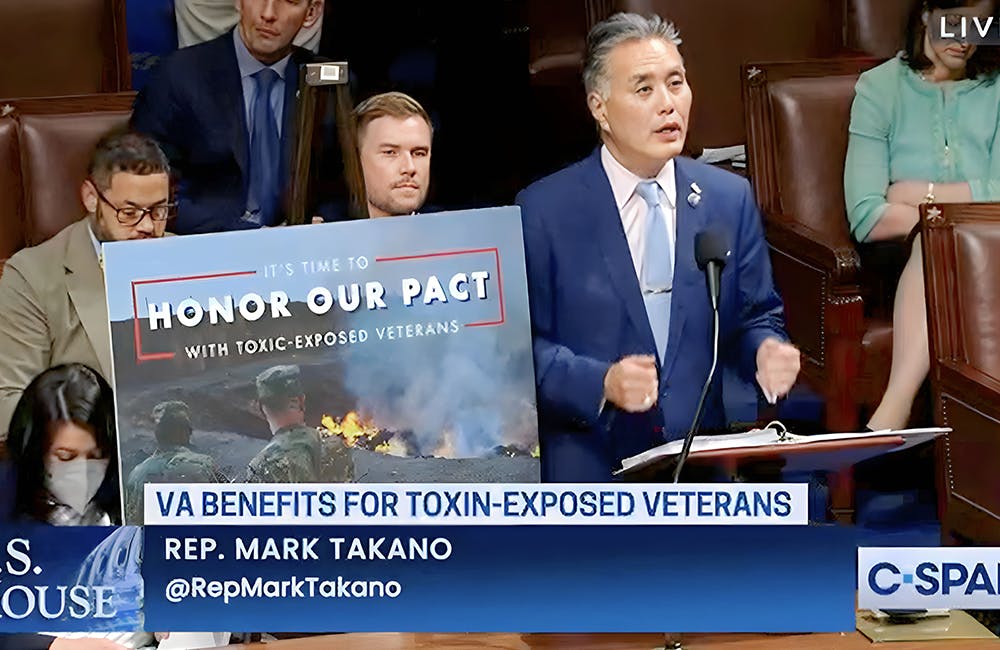Congress Approves Funding for VA Burn Pits Compensation
The newly passed PACT Act would provide support for veterans suffering from exposure to burn pits and other forms of toxic hazard.

The Senate has passed legislation that will fund compensation and health services for over 3 million veterans who suffered toxic exposure during their time in the service.
Formally approved Aug. 2 and awaiting President Biden’s sign off, the PACT Act will fulfill one of VA Secretary Denis McDonough’s long-stated goals. Providing support to veterans who suffered exposure to burn pits has been a consistent priority among both veteran groups and leadership at the VA and White House.
These efforts have included using electronic health records to automatically validate medical claims, a process that has quickened the delivery of newly awarded health benefits for napalm exposure the agency began paying out in 2021.
The recently passed burn pits legislation will expand this process into covering a long-needed form of medical compensation for veterans who suffered respiratory and other health problems as a result of serving near areas of chemical dispersal.
Nearly 3.5 million veterans are potentially eligible under the new provisions, making this legislation the largest expansion in veteran toxic exposure compensation since the passage of the Agent Orange Act in 1991.
The PACT Act is set to allocate $280 billion over the coming decade to provide financial compensation and streamline treatment access for veterans who have suffered from burn pit exposure and similar hazards. This funding will be provided through a dedicated yearly allocation that will not be subject to the possibility of delay or reduction due to Congressional revision.
In earlier remarks to the press, McDonough indicated the agency was prepared to put this sizable increase in veteran support and health care into motion the moment funding was approved.
“We at VA are ready to deliver for veterans as soon as this bill is signed into law. Vets and survivors have already waited too long for the health care and benefits they’ve earned,” McDonough said.
This is a carousel with manually rotating slides. Use Next and Previous buttons to navigate or jump to a slide with the slide dots
-

IRS CX Efforts Come With a New Acquisition Office
The agency is using Inflation Reduction Act funds to transform the taxpayer experience through digital tools and technology.
3m read -

CDRH Director Jeff Shuren to Leave FDA
Michelle Tarver, deputy center director for transformation, will become acting director of the Center for Devices and Radiological Health.
1m read -

How Health Care Leaders Should Plan for Building Cyber Resiliency
Policy leaders recommend health care organizations implement tools like encryption and multi-factor authentication to protect their data.
4m read -

HHS Aligns AI, Tech Strategy Under its Policy Agency
ONC will have a new name and oversee more c-suites to better shape the future of health care technology policy.
3m read








